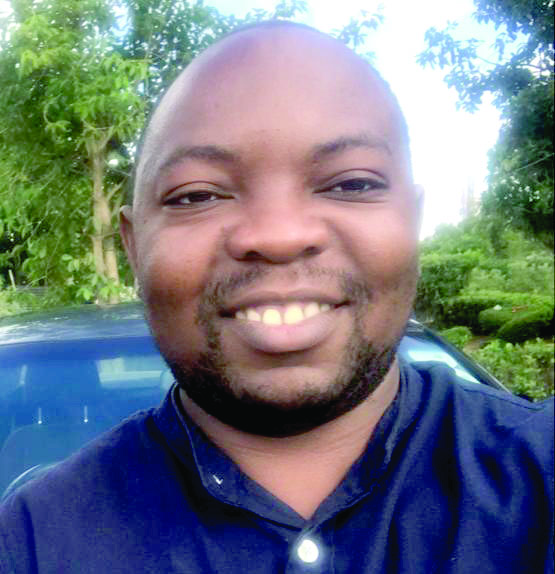LWEENDO
KAMBELA
EVERY year on May 25, Africans within and outside the continent celebrate Africa Day.
The day symbolises greater achievements of African countries, particularly the historical birth of the Organisation of African Unity (OAU) in Addis Ababa, Ethiopia, on May 25, 1963, which later evolved into African Union (AU) in 2002 in Durban, South Africa.
Yes, OAU was born, and now the AU, what does it mean to have an independent continent, free from colonial powers? what do the continent’s development efforts look like at present?
What does this celebration mean amid challenges of energy deficits, widespread corruption, climate shifts, armed conflicts, and the COVID-19 pandemic, among other challenges which are affecting the world?
This article seeks to offer some reflections on Africa Day celebrations, particularly my personal commentaries on what this day means.
Zambia and other African countries attach strong importance to Africa Day. While Africa Day gives an opportunity for Africans to remember the end of liberation struggles through the birth and operationalisation of a home-grown system – the OAU, present-day AU, the continent is still agitated by political, social, religious, economic and cultural deficits.
Now, the question lingering in our minds is: “Is Africa Day real or just symbolic amid all these deficits?”
For instance, Africa continues to experience waves of unconstitutional change of governments which took centre stage in the last few years.
Other classic examples of the challenges confronting Africa are the renewed and protracted conflicts in countries like Sudan, Democratic Republic of Congo, South Sudan, Mozambique, and Somalia.
These wars have pushed civilians to the edge with no solutions in sight to end the conflicts.
There have been efforts to address these conflicts, at the least, ceasefire agreements.
However, such efforts have been brokered along with scepticism and mistrust, particularly the recent ceasefire and externally mediated efforts in the Sudan war.
In addition to these problems, climate change in Africa has added another layer of difficulties, including fuelling conflicts, affecting rainfall patterns, and seriously impacting on numerous human security elements.
With all these issues, how can this ‘freedom’ celebration be real when most of the AU’s response interventions for addressing these challenges are anchored on external support?
Is Africa really free? Well, some analysts may argue that Africa Day is a day for every African country to celebrate their respective social, cultural, and political gains that collectively create conducive conditions for the overall African development agenda.
Such gains have been seen in countries like Zambia, Namibia, Mauritius, Botswana, Ghana, and Malawi whose historical backgrounds know no wars, except for their freedom struggles.
These countries continue to enjoy a stellar record of peace, which is the basis for Africa Day celebrations.
However, another big question would be: “Is having no gunshots enough to qualify a country as peaceful?”
How does this so-called ‘peaceful status’ tagged to these countries resonate with the serious social injustices and structural inequalities being experienced?
For instance, unprecedented incidents of gender-based violence, youth unemployment, ethnic rivalries, corruption and other socio-economic challenges these countries experience.
While there are no gunshots in such countries, there is still dire need to formulate holistic and clear infrastructure for peace to guarantee enjoyment of human rights, national cohesion, peace and stability.
There should be no reliance on the current security and intelligence policy frameworks which are not best placed to manage Africa’s emerging structural issues.
In conclusion, Africa Day celebrations should be demonstrated in terms of revitalisation of the commitment to Pan-Africanism and the overall positioning.
This positioning should be in the context of each country’s socio-economic development, peace, democratic gains, and collective management of Africa’s renowned resources, especially human and natural resources.
Also, the celebration should reflect and demand strong leaders and institutions of governance that are able to respond to emerging peace and security threats.
These threats to peace and security are the historical driving factors for Africa’s endemic poverty, forced migration, and political and social exclusion.
Such compromised institutions of governance are responsible for triggering deadly political violence and unwillingness to relinquish political power after loss of elections, as seen in many African countries.
More importantly, Africa needs to actualise the nexus between security and development. As such, strong emphasis should be on preventing insecurities rather than intervening after the eruption.
This is because if insecurities are ignored, not well managed and not resolved constructively, they can hamper continental development efforts and it would be difficult to achieve the noble aspirations of the AU’s Agenda 2063.
Therefore, with the current continental trends, it appears Africa Day remains just a symbolic celebration amidst numerous challenges that have disoriented paralysed African societies.
As Zambians who are enjoying our protracted period of relative peace, which is our scarce resource, let us all be proud and celebrate Africa Day today with gusto.
At the same time, we should be mindful of the externally and internally driven challenges confronting our country and the continent at large.
The author is a research fellow and lecturer at Dag Hammarskjōld Institute for Peace and Conflict Studies, Copperbelt University.


